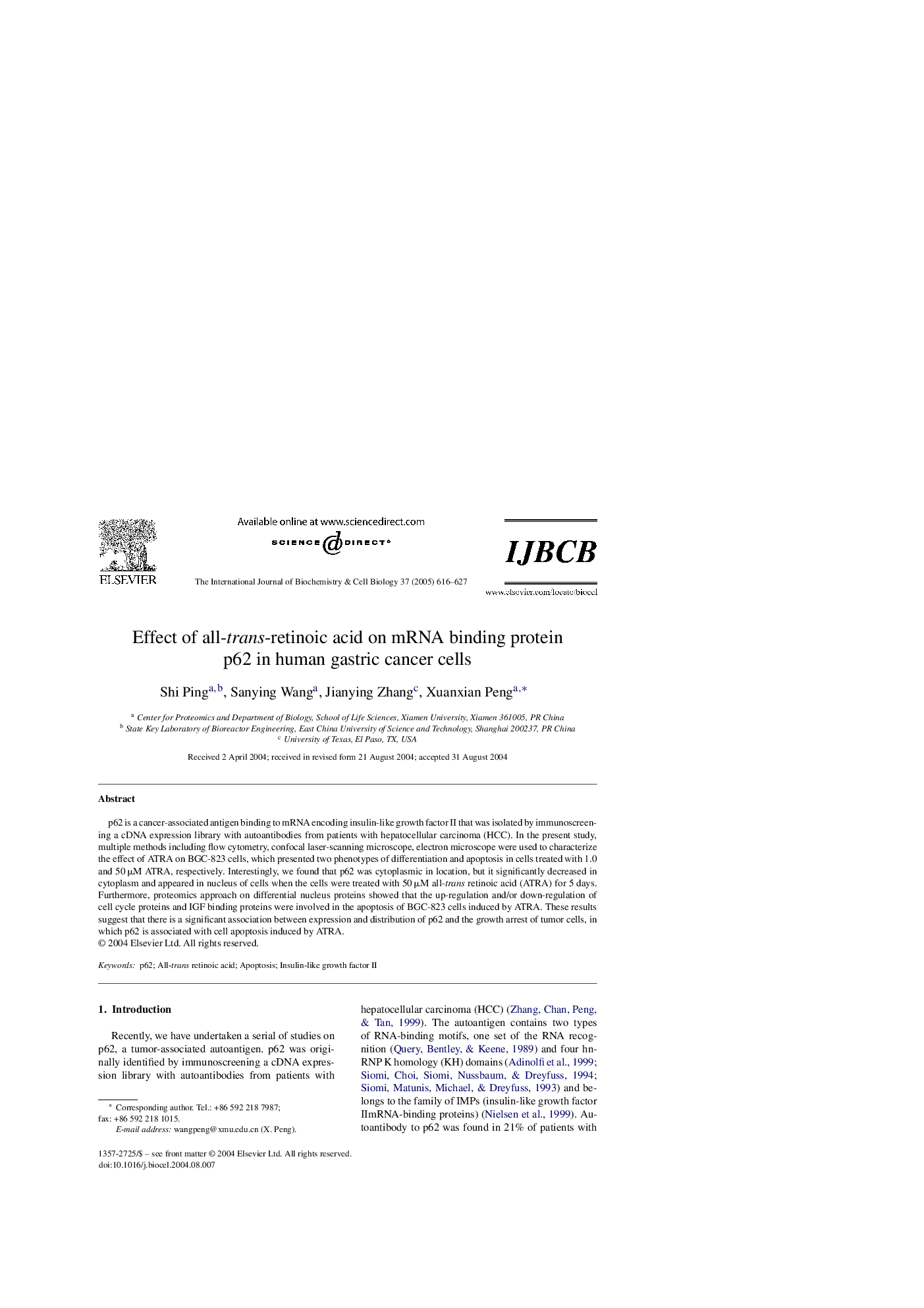| Article ID | Journal | Published Year | Pages | File Type |
|---|---|---|---|---|
| 9890083 | The International Journal of Biochemistry & Cell Biology | 2005 | 12 Pages |
Abstract
p62 is a cancer-associated antigen binding to mRNA encoding insulin-like growth factor II that was isolated by immunoscreening a cDNA expression library with autoantibodies from patients with hepatocellular carcinoma (HCC). In the present study, multiple methods including flow cytometry, confocal laser-scanning microscope, electron microscope were used to characterize the effect of ATRA on BGC-823 cells, which presented two phenotypes of differentiation and apoptosis in cells treated with 1.0 and 50 μM ATRA, respectively. Interestingly, we found that p62 was cytoplasmic in location, but it significantly decreased in cytoplasm and appeared in nucleus of cells when the cells were treated with 50 μM all-trans retinoic acid (ATRA) for 5 days. Furthermore, proteomics approach on differential nucleus proteins showed that the up-regulation and/or down-regulation of cell cycle proteins and IGF binding proteins were involved in the apoptosis of BGC-823 cells induced by ATRA. These results suggest that there is a significant association between expression and distribution of p62 and the growth arrest of tumor cells, in which p62 is associated with cell apoptosis induced by ATRA.
Related Topics
Life Sciences
Biochemistry, Genetics and Molecular Biology
Biochemistry
Authors
Shi Ping, Sanying Wang, Jianying Zhang, Xuanxian Peng,
